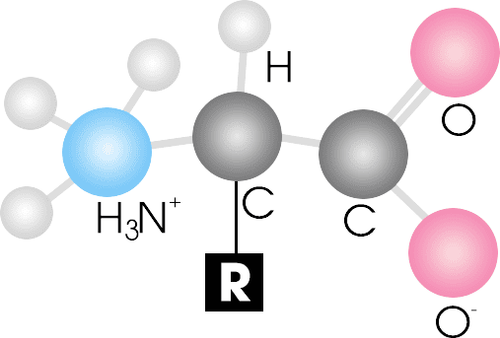This is an automatically translated article.
The article is expertly consulted by Master, Doctor Nguyen Minh Tuan - Pediatrician - Pediatrics - Neonatology - Vinmec Danang International General Hospital.Lysine is one of the essential amino acids that the body cannot make on its own. The following article will help us understand more about the benefits and side effects of lysine.
1. What is Lysine?
Lysine, also known as L-lysine, is an essential amino acid for the body. Unlike some other amino acids, the body cannot synthesize lysine on its own. Therefore, the body can only obtain lysine through the diet.Lysine is important for normal growth as well as muscle turnover. It is used to make carnitine - an amino acid found in most cells of the body. Besides, lysine helps transport fat through cells to burn for energy.
L-lysine is the form of lysine your body can use. It is found in foods and is the type used in supplements.
2. What does Lysine do?
Treatment of cold sores: Cold sores are a symptom of an infection, usually appearing on the lips or corners of the mouth. They appear as fluid-filled blisters that can cause discomfort, such as tingling, pain, and burning. Plus, they can make you feel self-conscious about your appearance.
Cold sores are caused by the herpes simplex virus type 1 (HSV-1). If you're stressed or your immune system is weakened, HSV-1 can trigger the development of cold sores. Lysine supplementation can help prevent the HSV-1 virus from reproducing. It is thought that lysine may block another amino acid called arginine, which HSV-1 needs in order to multiply and thrive.
Some studies suggest that lysine may reduce the duration and frequency of cold sores, however, this evidence is inconsistent.
Reduce anxiety and stress:

Lysine plays a role in reducing anxiety and stress. One study showed that lysine blocks receptors involved in the stress response. This study was conducted on rats, after being given lysine, they reduced the rate of loose bowel movements caused by stress.
A 1-week study in 50 healthy people found that supplementing with 2.64 grams of lysine and arginine reduced stress-induced anxiety and decreased the hormone cortisol.
Improve symptoms of schizophrenia: Lysine may also help people with schizophrenia, a mental disorder that disrupts an individual's perception of the outside world, often resulting in an inability to understand be realistic. Although research is still in the early stages, there is evidence that lysine can improve symptoms of schizophrenia in conjunction with prescribed medication;
Improve calcium absorption: Lysine can help your body keep calcium. It is believed that lysine increases calcium absorption and helps the kidneys retain the mineral. A study in 30 women, 15 healthy people, and 15 people with osteoporosis found that calcium and lysine supplements reduced the amount of calcium in the urine; Lysine is responsible for protecting bones and it also plays a role in controlling calcium transport in the body. Lysine is needed for the formation of collagen, a protein that acts as a scaffold, supporting and giving structure to skin and bones; Lysine itself also acts as a binding agent, increasing the number of new cells at the wound site. It even promotes the formation of new blood vessels. In an animal study, a combination of lysine and the amino acid arginine was able to improve and accelerate fracture healing; Wound healing is a complex process that requires various minerals, vitamins and elements. Lysine plays a very important role and without lysine wound healing will be impaired. Lowering blood pressure: A study in 50 adults with lysine deficiency and hypertension found that lysine supplementation significantly reduced blood pressure; Treat diabetes: One study found that lysine may help reduce blood sugar reactivity in people with diabetes. However, this issue needs to be studied more clearly; Other benefits such as: Promotes healthy skin growth, prevents osteoporosis with calcium supplements, controls blood pressure, treats shingles, prevents plaque buildup in arteries, helps with movement Encourages recovery after intense training

3. Lysine side effects
Lysine is POSSIBLY SAFE for most people through the diet at recommended doses for up to one year, or when applied to the skin for short periods of time. A person can take about 3g lysine a day without any side effects. However, if overdosed on Lysine can cause some side effects such as stomach pain, diarrhea, nausea.
Currently there is not enough reliable information about the safety of taking lysine during pregnancy or breast-feeding. Therefore, pregnant or lactating women should avoid use.
If you have kidney disease, you should check your health before taking lysine.
4. Lysine in which foods?
Lysine is present in many different foods. The main sources of lysine are from animals, such as meat and dairy products. For vegetarians and vegans, legumes and wheat germ are good food sources of this amino acid.
The following foods will help us meet the recommended daily amount of lysine:
Red meat; Chicken; Egg; Fish, such as cod or sardines; Bean; lentils; Cheese; Wheat germ; Nuts; Soy bean; Yeast; Spirulina, a type of algae that manufacturers compress and sell in tablet or powder form. Most people, including vegetarians, get enough lysine from their usual diet and do not need to supplement.
Ensuring adequate lysine intake for the body is necessary to maintain good health. Lysine supplementation may be beneficial in certain circumstances. Without enough lysine, the body will not be able to produce enough hormones and immune cells.
Please dial HOTLINE for more information or register for an appointment HERE. Download MyVinmec app to make appointments faster and to manage your bookings easily.
Reference source: healthline.com; medicalnewstoday













